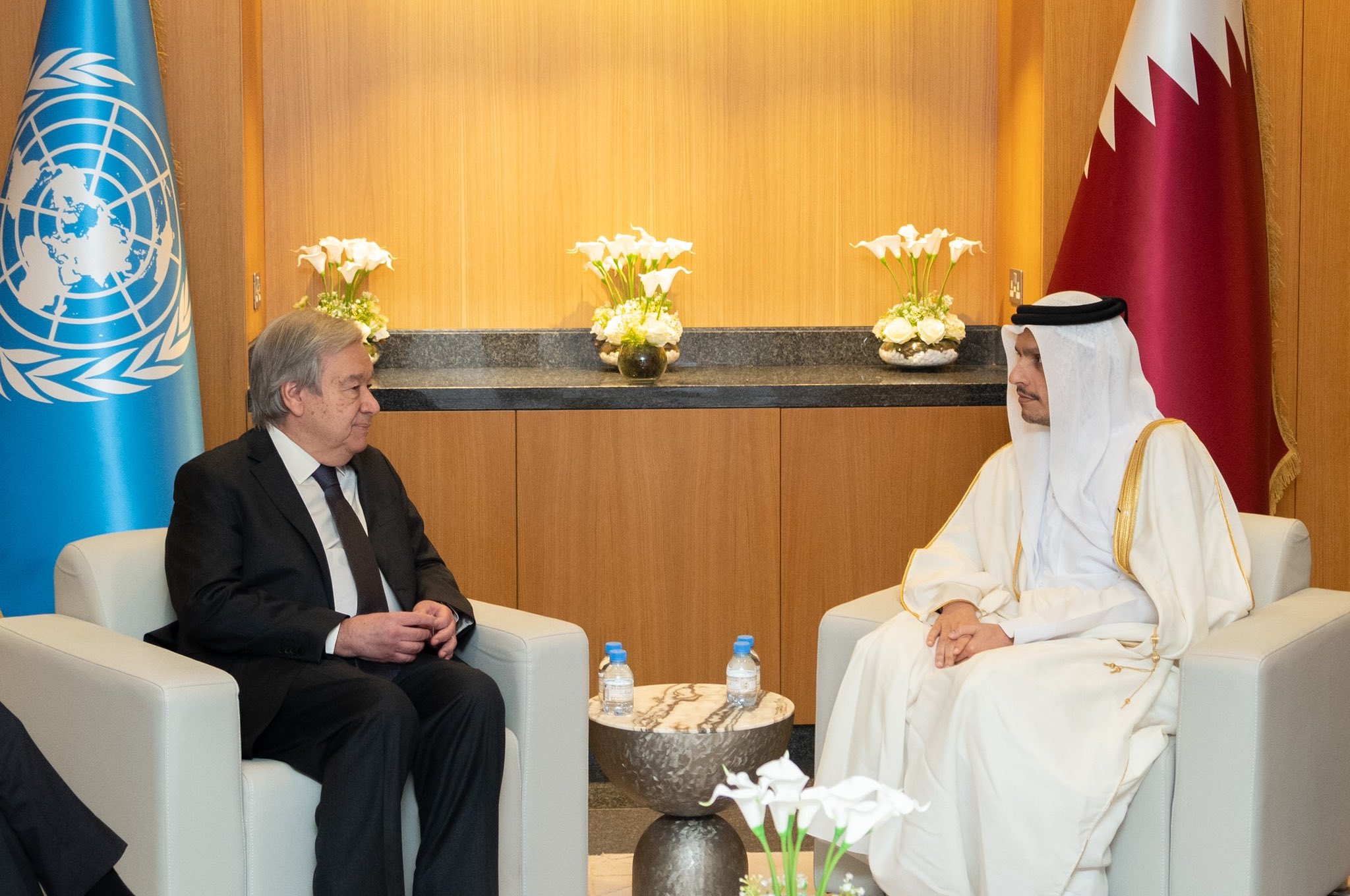Sanctions relief has been Iran’s main demand throughout the talks.
Concerns regarding the 2015 Iran nuclear deal were discussed during a meeting between Qatar’s Foreign Minister Mohammed bin Abdulrahman Al Thani and United Nations Secretary General Antonio Guterres in Doha on Saturday, according to the state-run Qatar News Agency.
The officials “discussed bilateral cooperation relations between the State of Qatar and the UN and ways to support and develop them, in addition to the developments in the occupied Palestinian territories, Libya and Afghanistan, the latest updates of the Iranian nuclear file talks, and several issues of common concern,” QNA reported.
The UN secretary general arrived in the Gulf state to attend the Fifth United Nations Conference on the Least Developed Countries (LDC5), which is being held from March 5-9 this week.
He also attended the opening of the United Nations House in Lusail on Saturday.
In a tweet, Sheikh Mohammed said: “Pleased to meet Antonio Guterres, Secretary-General of the United Nations, on the sidelines of the LDC5 Conference. The State of Qatar believes that through reliable partnerships with the UN, we can contribute to addressing the current and emerging challenges facing the LDCs.”
Guterres has been working with relevant authorities to push for the restoration of the Joint Comprehensive Plan of Action (JCPOA) – the official name of the nuclear agreement – after it was abandoned by the former US President Donald Trump.
Qatar’s mediation
According to Tehran Times, the Biden administration’s refusal to waive sanctions imposed by his predecessor has put an end to negotiations to save the historic accord.
Tensions between the US and Iran increased after Washington unilaterally withdrew from the 2015 nuclear agreement during Donald Trump’s tenure as president.
As part of his “maximum pressure” campaign against Tehran, the US also imposed crippling sanctions on Iran in 2018. Sanctions relief has been Iran’s main demand throughout the talks.
However, steps to revive the historic accord have since been discussed though no progress has been made since the initial 2021 Vienna talks.
Last year, Qatar intervened by holding a new round of negotiations in its capital. With those negotiations facing what appears to be a stalemate, Doha has appeared to increase its efforts in breaking the impasse by holding numerous discussions with Tehran and Washington.
Last month, Sheikh Mohammed met with his Iranian counterpart Hossein Amir-Abdollahian in Tehran to deliver a message from parties involved in the nuclear talks. Shortly after, Iran welcomed Qatari mediation efforts to push for a prisoner exchange between the US and the Islamic Republic.
The latest meeting between the Qatari and UN officials comes following a meeting between Guterres and Iran’s foreign minister last week, in which the pair discussed the JCPOA as well as human rights issues, UN Spokesman Stéphane Dujarric confirmed, according to state-run Islamic Republic News Agency.
That visit saw the Iranian foreign minister and UN secretary general discuss the most recent developments in Iran, International Atomic Energy Agency (IAEA) cooperation aimed at resolving outstanding issues and potential IAEA inspectors’ visit to Tehran.
Iran’s President Ebrahim Raisi noted on Saturday that collaboration is a two-way street and that it is crucial for bilateral relations to uphold the IAEA’s independence and respect for the rights of the Iranian people.
Separately, Dujarric told reporters on Tuesday in New York that the UN is unable to validate claims that Iran has refined uranium to a purity of 84% and that the IAEA would send a team to Tehran next few days to investigate the claims.
He asserted that the UN’s position on Iran’s nuclear programme has not changed and that Tehran must abide by all the agreements it has made with the IAEA and other international organisations.
In a classified report to its Board of Governors last week, the IAEA stated that discussions are ongoing to substantiate assertions that Iran has enriched its uranium to 84%, according to IRNA.
Iran’s Head of the Atomic Energy Organisation maintained on Saturday that Iran has not had any enrichment above 60%.







